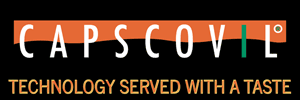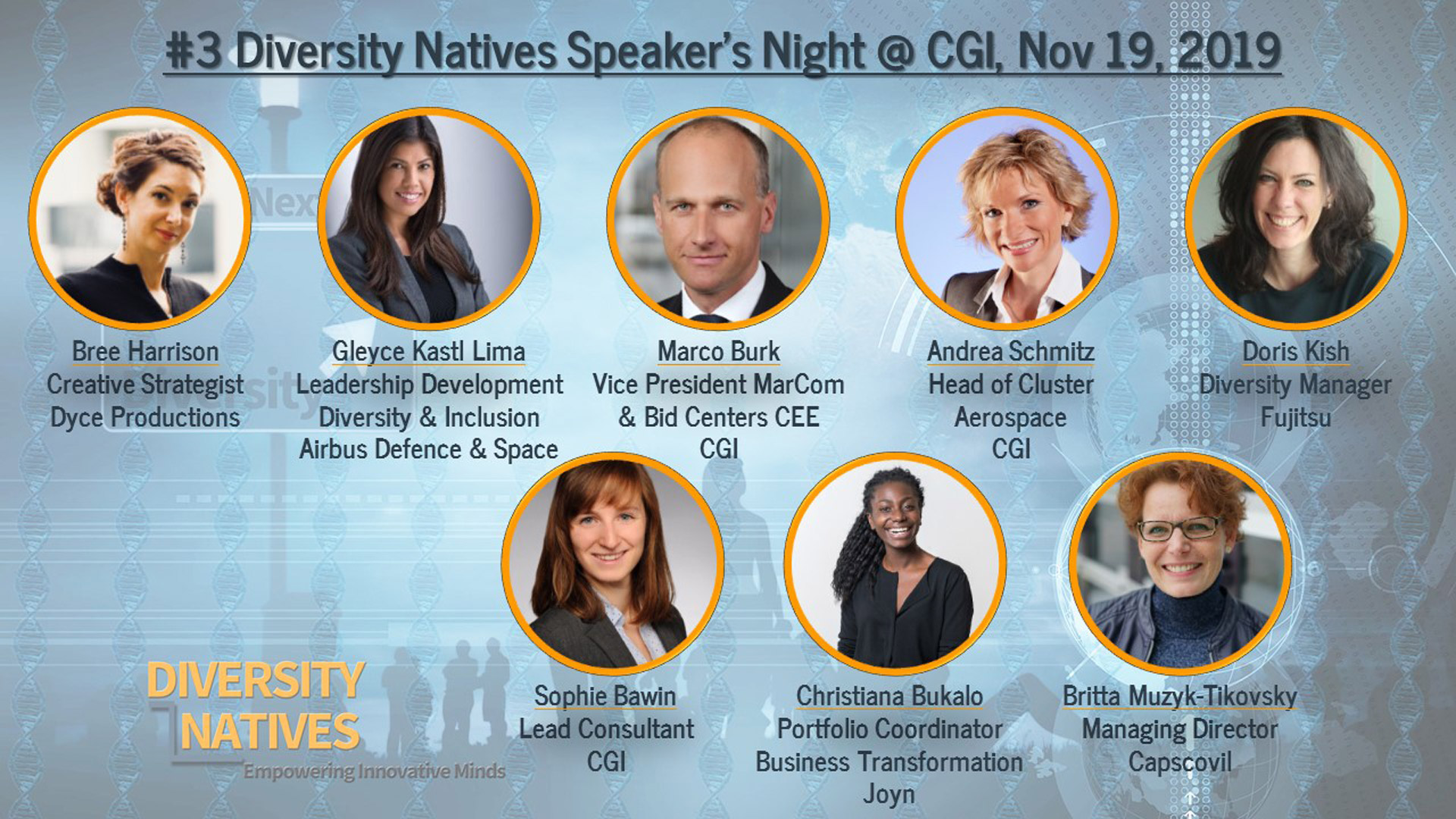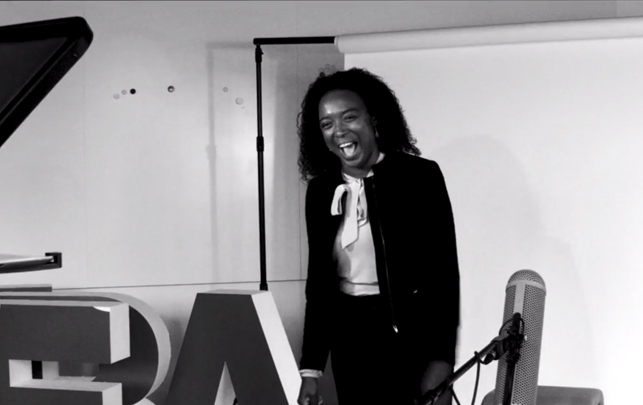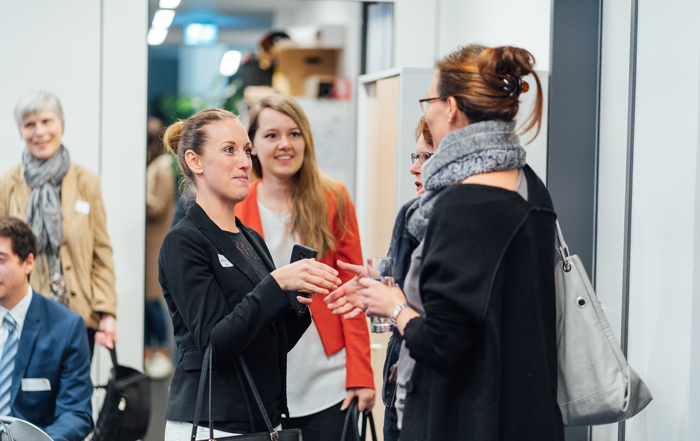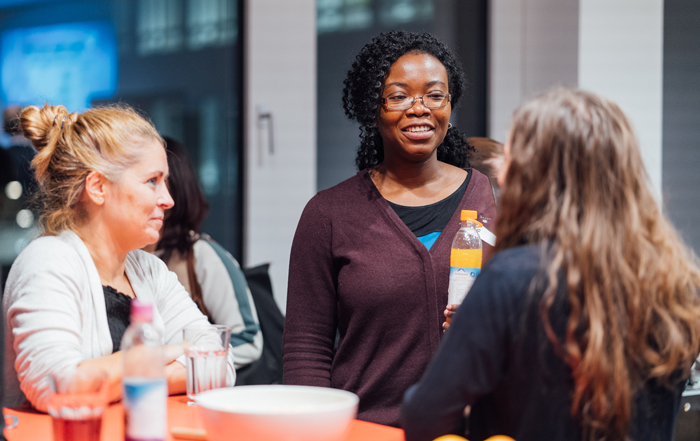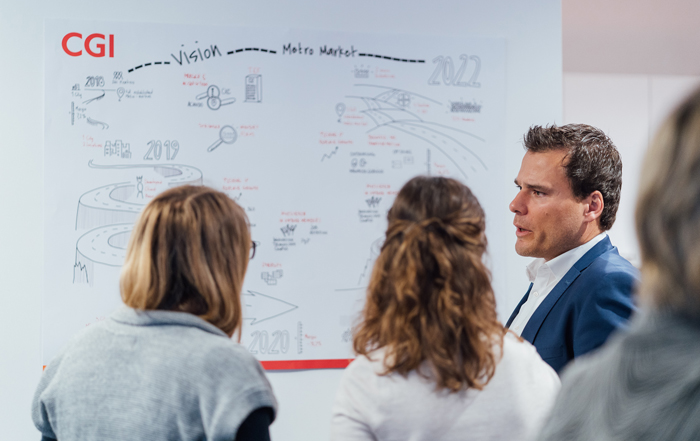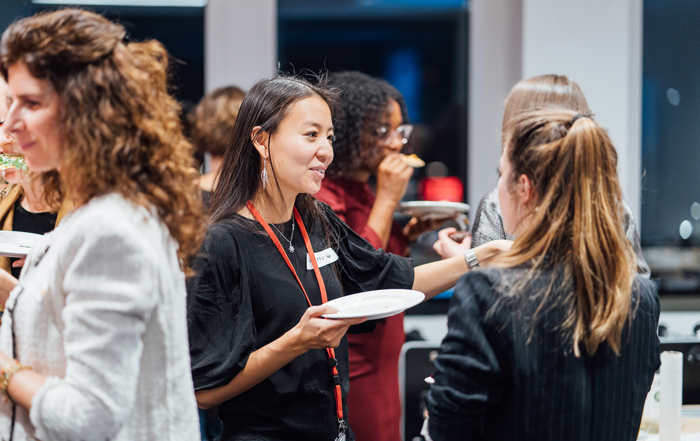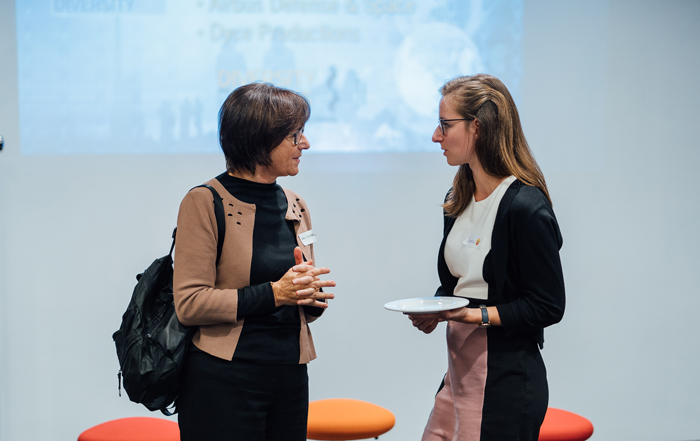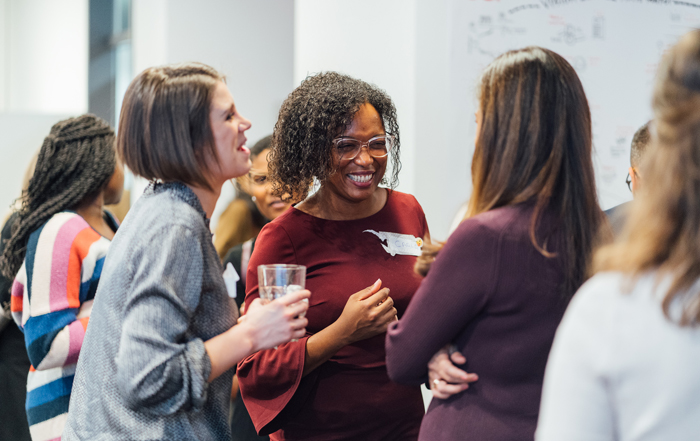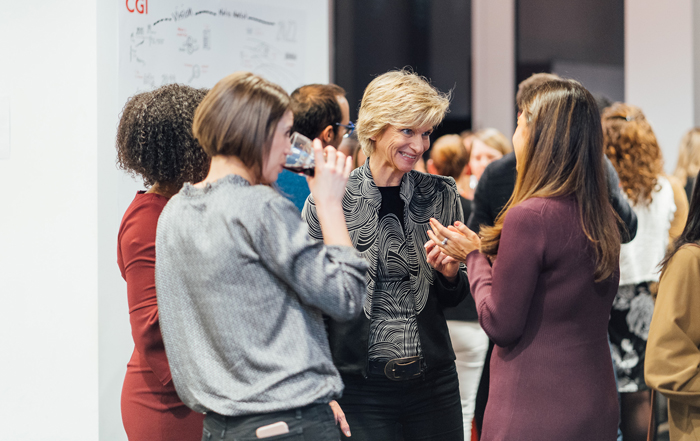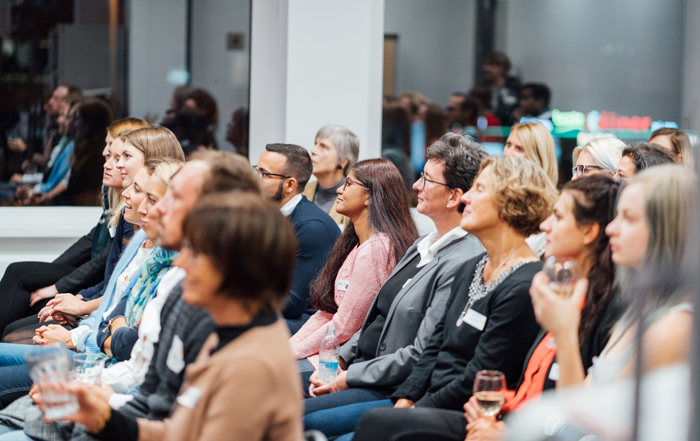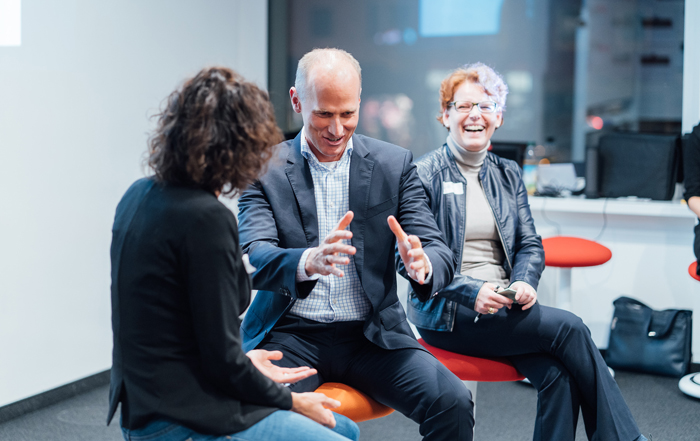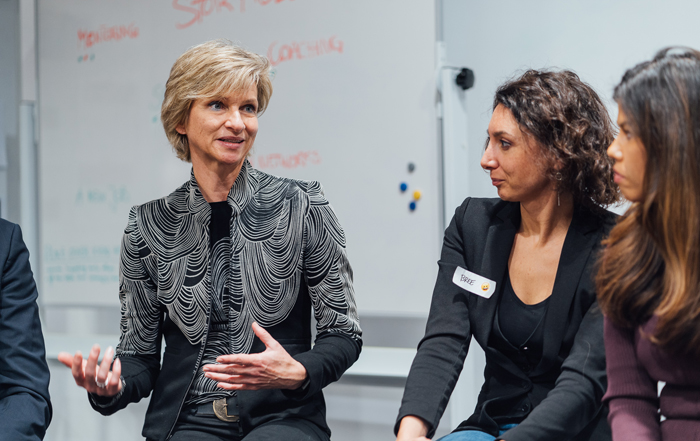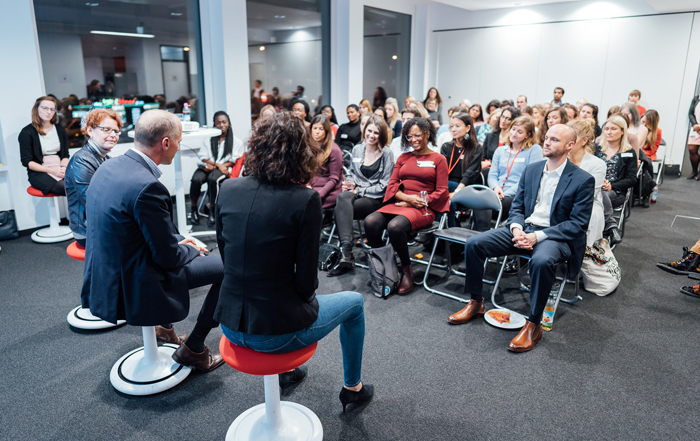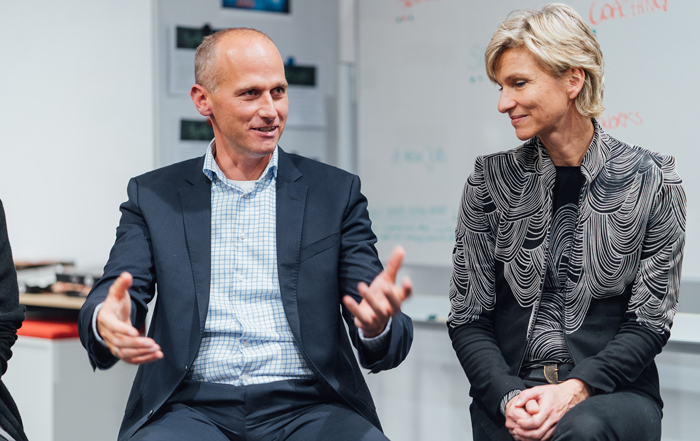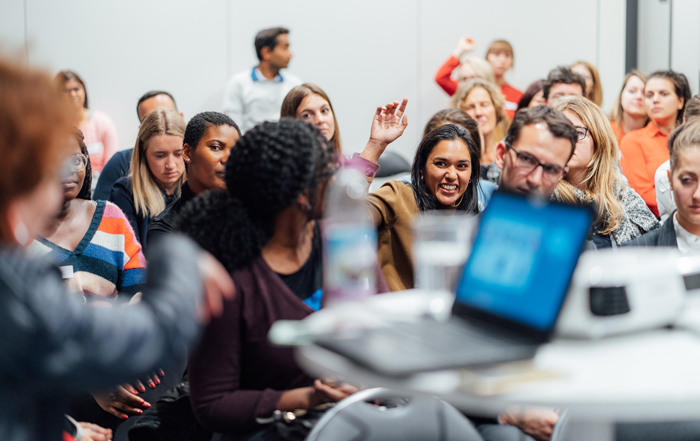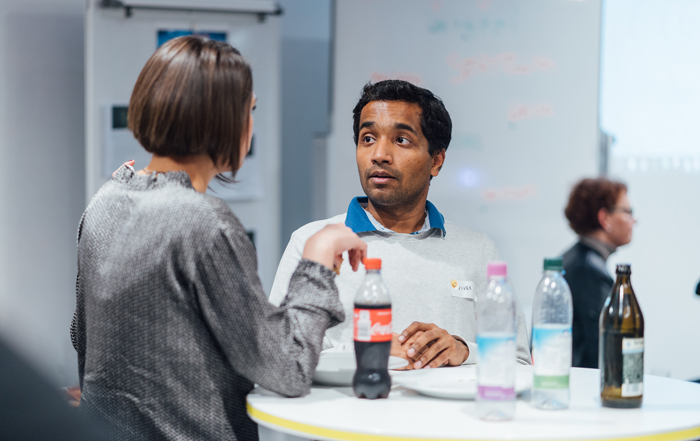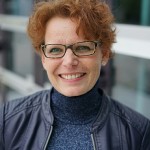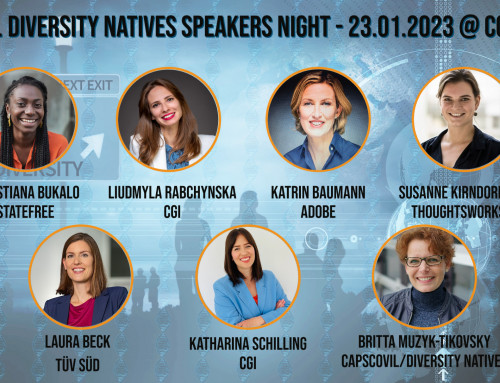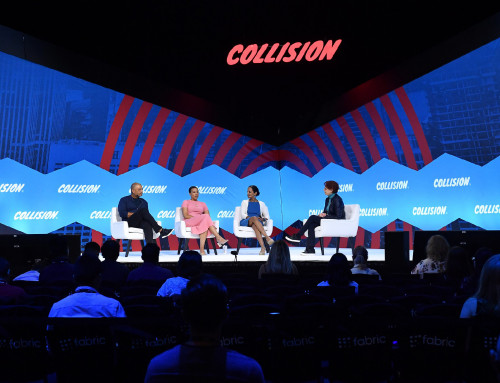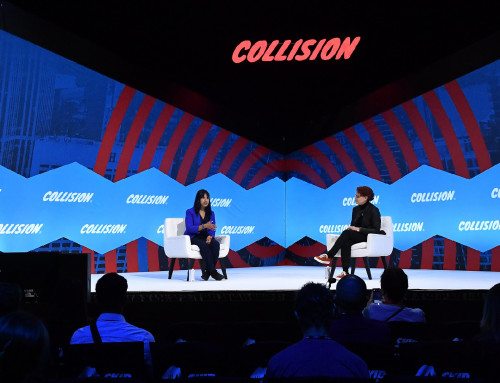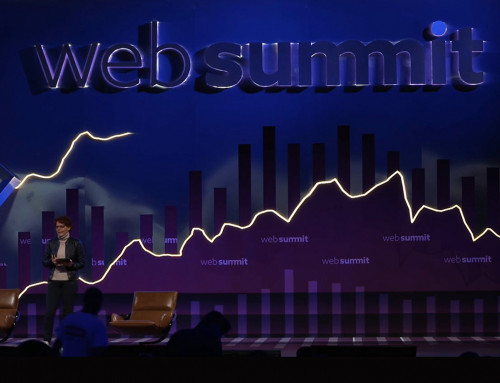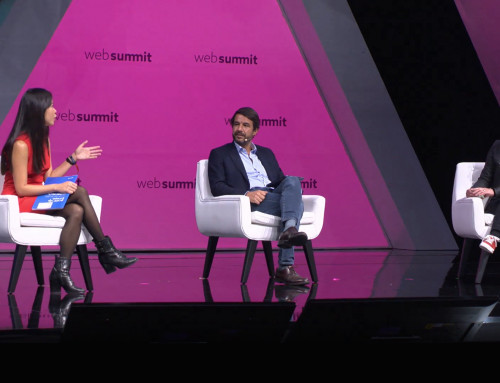Event Report
Authors: Vivek Sethia, Swathi Shyam Sunder | Photos: Sam Oetiker
How to Break the Glass Ceiling
On November 19, 2019, CGI in Munich opened their doors for the 3rd Diversity Natives Speaker’s Night. The event was attended by around 70 people from many diverse backgrounds, culture, color and from different professions. Most of the participants were women and the audience in general was a great mix of familiar faces from past events and new community members.
After a warm welcome by Diversity Natives’ founder Britta, Sophie Bawin from CGI let the audience in on the probably best kept secret in IT world: the company she works with.
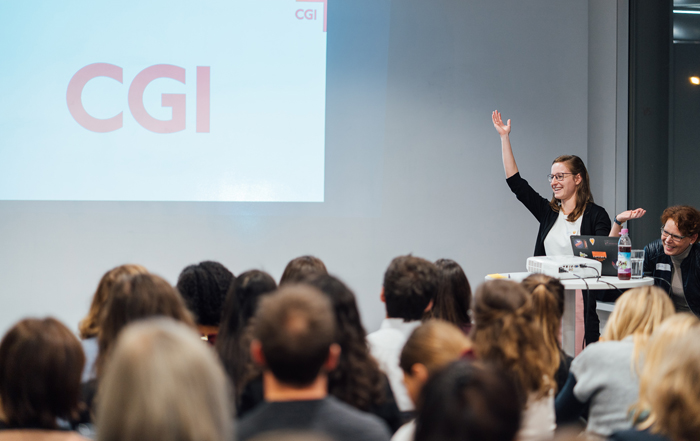
Sophie Bawin (Photo: Sam Oetiker)
77,500 professionals, of whom 85% are stakeholders, work across 400 locations in 40 countries generating an annual revenue of over €7,5 billion. Their clients’ satisfaction is a solid 9,2 out of 10, certainly caused by a 95% ration of on-time and within budget delivery of projects. Areas that CGI serves their clients in include Artificial Intelligence, Deep Learning and Robotics; Blockchain and Cryptocurrencies; Augmented and Mixed Reality; Big Data and Predictive Analytics; User Interface Design and Mobility; and Cloud Native Development.
The event featured three different panels with speakers from CGI, Airbus Defence & Space, Fujitsu and Dyce Productions. The first discussion evolved around „How can we win over men to support women and people of underrepresented groups on their way up through the glass ceiling?“ There are many initiatives and news on diversity, especially gender diversity, which interestingly lead to the perception (mostly that of men) that a lot has changed in the past years. But has it really?
Recent numbers for women on the board of directors at DAX, MDAX and SDAX companies speak a different language: 160 companies listed on these German stock indexes have 61 female directors and 640 male directors this year. That’s 9 percent. Although the ratio doubled from 2015, it still offers a huge amount of improvement. 67 percent of the companies even have an all-male board. Only 3 of 160 firms have a female CEO. Segments with a higher percentage of women on the board are Telco, Finance and Transportation with around 15%. Pharma, Biotec and IT have as little as 5-6%.
The importance of advocates
Bree Harrison (Creative Strategist, Dyce Productions) and Marco Burk (Vice President MarCom & Bid Centers CEE, CGI) in conversation with Britta Muzyk-Tikovsky (Capscovil/Founder of Diversity Natives) talked about how one can help create a conducive environment for people from underrepresented groups to be what they are and be included.
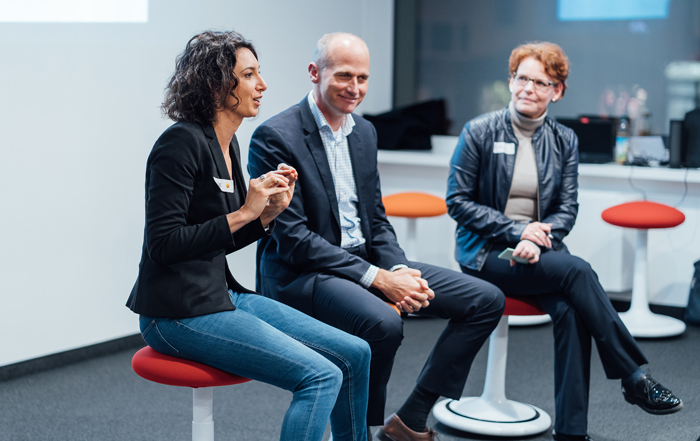
Bree Harrison, Marco Burk, Britta Muzyk-Tikovsky. (Photo: Sam Oetiker)
The key takeaways from this discussion:
- Quite often, people do not hire more women in the workplace (even if they want to) as there simply are fewer women applying for a technical or higher-level position. One probable cause for this could be that women tend to not apply for a position unless they think they can fulfill 80% or more of the requirements. Most men, on the contrary, seem to have a go-for-it attitude and apply despite fulfilling much less, e.g. only 40%, of the prerequisites. This trend, however, seems to have been changing recently
- Another observation is that more often than men women discount their ideas as they are not confident about it and as a result also sometimes get „Broppropriated“ as Bree mentioned. In other words, ideas originally coming from women may not be valued the same way as if these ideas were proposed by bros/men which tend to be received well
- How men can help women during conversations: intervening at the right time and not ignoring the situations but rather be more aware of situations like described above. The need for white male advocates who believe in diversity to lead by example is one of the key factors to move ahead
- An important note from the moderator: it’s not about diversity based merely on gender or color or race, but it should rather be understood from the perspective of character traits
Connect and get visible
The second panel discussion evolved around „What networks do we need to build in order to catch the elevator up to the top?“ Sophie Bawin (Lead Consultant, CGI) explored with her speakers Andrea Schmitz (Head of Cluster Aerospace, CGI), Doris Kish (Diversity Manager, Fujitsu), and Gleyce Kastl Lima (Leadership Development Diversity & Inclusion, Airbus Defence & Space) how important internal networks and those outside of work are.
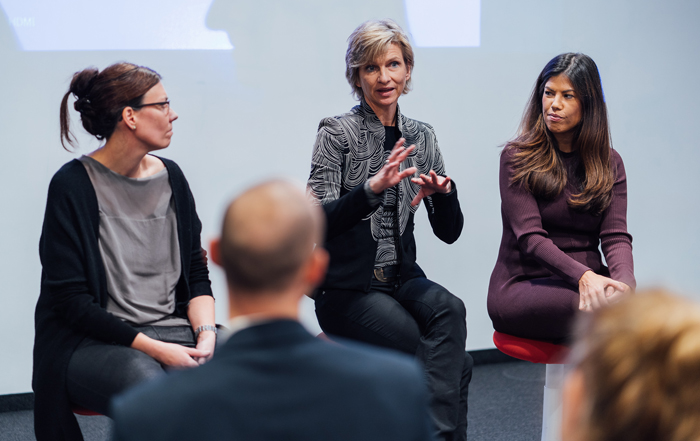
Doris Kish, Andrea Schmitz, Gleyce Kastl Lima (Photo: Sam Oetiker)
The key takeaways from this wonderful panel and their discussion:
- Internal networks help employees but they also need support from the top of the organization to be a success in the longer run
- One should also work on their visibility, otherwise, you just remain on paper for the organization
- Keep sharing information and soon you will become an expert while learning through sharing #sharingiscaring
- A successful network is about both giving and taking, and not only consuming input from the network
Diversity needs inclusion to be effective
The final panel was moderated by Christiana Bukalo (Portfolio Coordinator Business Transformation, Joyn) and centered around „How to leverage different cultures and age for more diversity“. This was an intense and interesting discussion with Bree Harrison, Andrea Schmitz, Doris Kish, Sophie Bawin, Gleyce Kastl-Lima and Sophie Bawin which later on included questions and observations or recommendations from the audience.
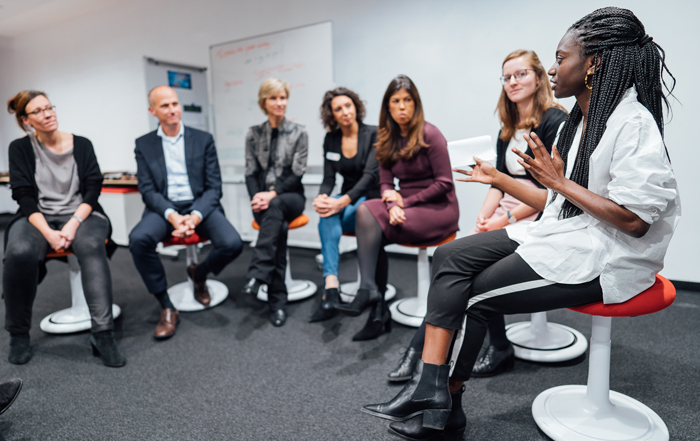
Doris Kish, Marco Burk, Andrea Schmitz, Bree Harrison, Gleyce Kastl Lima, Sophie Bawin, Christiana Bukalow (Photo: Sam Oetiker)
The summary of this discussion:
- Language barriers may create misunderstandings during meetings with diverse participants
- The need to be open to different cultures and embrace the differences between each other
- Approach the misunderstandings or solve the problems encountered with a positive mindset and always ask the other person when in doubt
- It motivates people and the team you work with, if one tries to understand the different cultural differences
- It’s not only important to think diversity but equally important to think about inclusion. Hiring people for the sake of diversity won’t work. There need to be more programs inside the organization to enable the support network
Gleyce also shared the latest statements made by Airbus Defence and Space executives on diversity:
Opportunities for Diversity Natives
Savoring on pizza and drinks, lively discussions and new networks formed as participants and panelists deepened the exchange of their thoughts with newly found peers or potential team members and employers: CGI and System Crew, a startup that Britta advises on talent management, are not only hiring but specifically looking to include new people from diverse backgrounds into their teams.
Opportunities at CGI can be found on their website.
System Crew offers positions for a Senior IT Project Manager, an E2E Solution Specialist, and a Network Administrator -> for more details, contact Britta via email: talents [at] systemcrew.de
A big Thank You to CGI for sponsoring our 3rd Diversity Natives Speaker’s Night and making it a successful event.
Special thanks go to Sam Oetiker who captured the empowering event atmosphere with his pictures.
And a huge Thank You goes to our Diversity Natives community for joining us that night!
About Diversity Natives
Diversity Natives is an initiative by Capscovil’s founder Britta Muzyk-Tikovsky with the goal to foster innovation by embracing diversity and inclusion in technology and business. For more information on how to get involved as a business, sponsor, ambassador, or community member, visit the website or send us an email.
